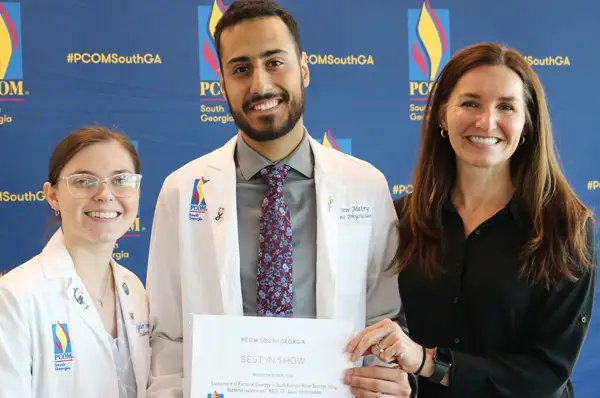PCOM South Georgia's research focuses on education, community impact and healthcare
delivery and outcomes.
Education research
- Comparison of content mastery from lectures, active learning groups and team-based
learning exercises.
- Development and testing of innovative approaches to medical education and training.
(Example: Assessment of direct versus indirect supervision.)
- Utilize the clinical learning and assessment and gross anatomy labs for research purposes.
(Examples: 1. Assessment of a program that uses standardized patients for the informed
consent process and 2. Characterization of anomalies.)
Healthcare delivery and outcomes research
- Assessments of healthcare delivery and patient education in Colquitt County.
- Development and testing of novel approaches for:
- Increasing patient compliance;
- Enhancing community outreach;
- Reducing disparities in and barriers to access to care; and
- Improving methods of healthcare delivery within hospitals, outpatient centers and
the home.
- Promote collaborations between faculty, students, healthcare providers, community
leaders and patients.
- Improve and promote health.
- Anatomical variation studies
Community-based research
Assessments of PCOM's impact on:
- Patients' attitudes and commitment to care.
- Promotion of health and disease prevention through student run educational programs.
- Mentoring and research activities on campus and within healthcare centers and the
community.
- High school and undergraduate students' choices of majors and career paths in the
biomedical sciences.
- Recruitment of local undergraduates student to PCOM.
- Retaining PCOM graduates in the region.
Secondary research





